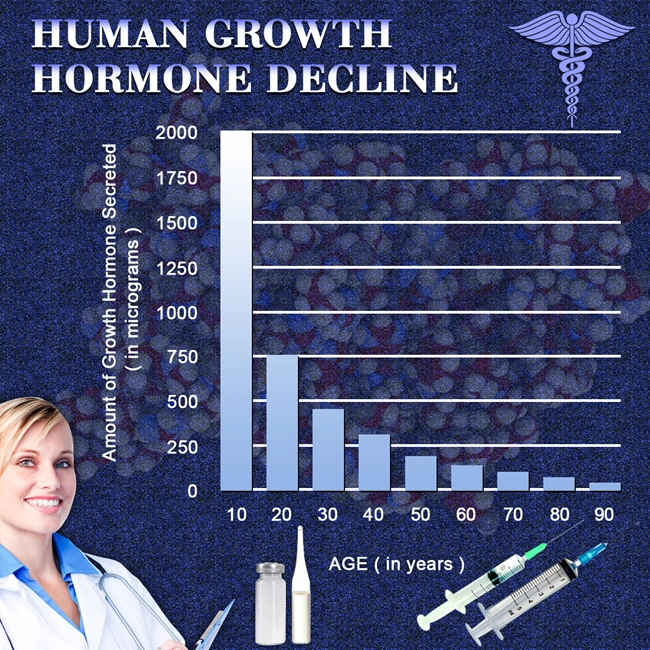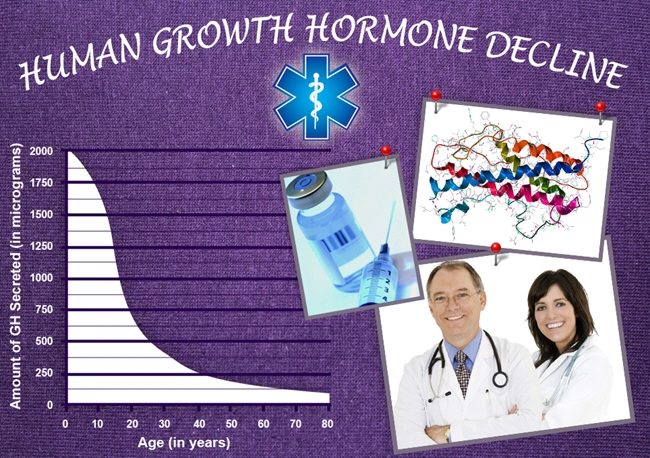
Introduction
Cardiovascular disease (CVD) remains a leading cause of morbidity and mortality among American males. Concurrently, urological health issues, such as erectile dysfunction (ED) and benign prostatic hyperplasia (BPH), are prevalent and often intertwined with cardiovascular health. This article explores the intersection of urological health and cardiovascular disease in American males, emphasizing strategies for integrated care to enhance patient outcomes.
The Link Between Urological Health and Cardiovascular Disease
The relationship between urological health and cardiovascular disease is well-documented. Conditions such as ED are often early indicators of underlying cardiovascular issues. Studies have shown that men with ED are at a higher risk for developing CVD, as both conditions share common risk factors including hypertension, diabetes, and smoking. Similarly, BPH, a common urological condition, has been linked to increased cardiovascular risk, particularly in older men. Understanding these connections is crucial for developing effective treatment plans that address both urological and cardiovascular health.
Strategies for Integrated Care
Integrated care approaches are essential for managing the complex interplay between urological health and cardiovascular disease. A multidisciplinary team, including urologists, cardiologists, primary care physicians, and lifestyle coaches, can provide comprehensive care tailored to the individual needs of patients. Regular screenings for both urological and cardiovascular conditions should be part of routine health assessments for American males, especially those with known risk factors.
Lifestyle Modifications
Lifestyle modifications play a pivotal role in managing both urological and cardiovascular health. Encouraging patients to adopt a heart-healthy diet, engage in regular physical activity, maintain a healthy weight, and quit smoking can significantly improve outcomes. For instance, a diet rich in fruits, vegetables, whole grains, and lean proteins can help manage hypertension and improve erectile function. Exercise not only enhances cardiovascular health but also boosts blood flow, which is beneficial for urological conditions like ED.
Pharmacological Interventions
Pharmacological interventions may be necessary for patients with more severe or concurrent urological and cardiovascular conditions. Medications such as phosphodiesterase type 5 inhibitors (PDE5 inhibitors) are commonly used to treat ED and have been shown to have cardiovascular benefits. However, caution must be exercised in patients with certain cardiovascular conditions, and a collaborative approach between urologists and cardiologists is crucial to ensure safe and effective treatment. Similarly, medications used to manage BPH, such as alpha-blockers, may have implications for cardiovascular health and should be monitored closely.
Patient Education and Support
Educating patients about the link between urological health and cardiovascular disease is vital for fostering proactive health management. Patients should be informed about the importance of regular check-ups, the benefits of lifestyle changes, and the potential side effects of medications. Support groups and counseling can also play a significant role in helping patients navigate the emotional and psychological aspects of managing chronic conditions.
Conclusion
The integration of urological and cardiovascular care is essential for improving the health outcomes of American males. By understanding the interconnected nature of these conditions and implementing a comprehensive, multidisciplinary approach, healthcare providers can offer more effective treatments and support. Emphasizing lifestyle modifications, judicious use of pharmacological interventions, and robust patient education will empower men to take control of their health and lead fulfilling lives despite the challenges posed by urological and cardiovascular diseases.
Contact Us Today For A Free Consultation
Dear Patient,
Once you have completing the above contact form, for security purposes and confirmation, please confirm your information by calling us.
Please call now: 1-800-380-5339.
Welcoming You To Our Clinic, Professor Tom Henderson.

- Urological Health Guide: Understanding Conditions and Enhancing Wellness in American Men [Last Updated On: March 3rd, 2025] [Originally Added On: March 3rd, 2025]
- Preventing Urological Infections: Hydration, Hygiene, and Health Strategies for American Males [Last Updated On: March 16th, 2025] [Originally Added On: March 16th, 2025]
- Heart Health and Urology: Vital Connections in American Men's Well-being [Last Updated On: March 18th, 2025] [Originally Added On: March 18th, 2025]
- Urological Health and Fertility: Key Conditions, Diagnosis, and Treatment for American Males [Last Updated On: March 19th, 2025] [Originally Added On: March 19th, 2025]
- Urological Health Tips for American Men in the Workplace [Last Updated On: March 19th, 2025] [Originally Added On: March 19th, 2025]
- Genetics and Urological Health: Insights for American Men's Proactive Care [Last Updated On: March 19th, 2025] [Originally Added On: March 19th, 2025]
- Managing Urological Pain in Men: Causes, Diagnosis, and Treatment Strategies [Last Updated On: March 19th, 2025] [Originally Added On: March 19th, 2025]
- Urological Health Guide: Symptoms, Conditions, and Care for American Men [Last Updated On: March 19th, 2025] [Originally Added On: March 19th, 2025]
- Modern Urology Advances: Minimally Invasive, Personalized Care for American Males [Last Updated On: March 20th, 2025] [Originally Added On: March 20th, 2025]
- Smoking's Profound Impact on Urological Health in American Men: Risks and Cessation Benefits [Last Updated On: March 21st, 2025] [Originally Added On: March 21st, 2025]
- Urological Health and Insurance: Navigating Coverage for Men's Well-being [Last Updated On: March 21st, 2025] [Originally Added On: March 21st, 2025]
- Obesity's Impact on Urological Health in American Men: Risks and Management Strategies [Last Updated On: March 22nd, 2025] [Originally Added On: March 22nd, 2025]
- Exercise and Urological Health: Enhancing Wellness in American Men [Last Updated On: March 22nd, 2025] [Originally Added On: March 22nd, 2025]
- Hydration's Crucial Role in Urological Health for American Men: Tips and Insights [Last Updated On: March 22nd, 2025] [Originally Added On: March 22nd, 2025]
- Stress and Urological Health in American Males: Impacts and Management Strategies [Last Updated On: March 22nd, 2025] [Originally Added On: March 22nd, 2025]
- Urological Health Education: Vital for American Males' Well-being and Longevity [Last Updated On: March 23rd, 2025] [Originally Added On: March 23rd, 2025]
- Supplements Supporting Urological Health in American Men: Saw Palmetto, Beta-Sitosterol, Cranberry [Last Updated On: March 23rd, 2025] [Originally Added On: March 23rd, 2025]
- Urological Rehabilitation: Enhancing American Men's Health and Quality of Life [Last Updated On: March 23rd, 2025] [Originally Added On: March 23rd, 2025]
- Urological Health: Key to Successful Family Planning for American Males [Last Updated On: March 23rd, 2025] [Originally Added On: March 23rd, 2025]
- Urological Health in Sports: Risks, Prevention, and Management for Male Athletes [Last Updated On: March 23rd, 2025] [Originally Added On: March 23rd, 2025]
- Urological Health Guide for American Males: Conditions, Procedures, and Prevention [Last Updated On: March 23rd, 2025] [Originally Added On: March 23rd, 2025]
- Urological Health and Sleep: A Comprehensive Guide for American Men [Last Updated On: March 24th, 2025] [Originally Added On: March 24th, 2025]
- VA's Comprehensive Urological Care for American Male Veterans: Services and Support [Last Updated On: March 24th, 2025] [Originally Added On: March 24th, 2025]
- Urological Surgery Recovery Guide for American Males: Holistic Care and Tips [Last Updated On: March 24th, 2025] [Originally Added On: March 24th, 2025]
- Urological Health and Mental Well-being: A Holistic Approach for American Men [Last Updated On: March 24th, 2025] [Originally Added On: March 24th, 2025]
- Urological Health: Vital Preventive Care for American Men's Well-being [Last Updated On: March 25th, 2025] [Originally Added On: March 25th, 2025]
- Urological Health for American Males: Hygiene, Habits, and Holistic Care [Last Updated On: March 25th, 2025] [Originally Added On: March 25th, 2025]
- Urological Health: Importance of Early Detection and Screening for Young American Males [Last Updated On: March 25th, 2025] [Originally Added On: March 25th, 2025]
- Urological Health and Mental Well-being: A Holistic Approach for American Men [Last Updated On: March 25th, 2025] [Originally Added On: March 25th, 2025]
- Urological Health: Breaking Stigma and Addressing Psychological Impacts in American Males [Last Updated On: March 25th, 2025] [Originally Added On: March 25th, 2025]
- Urological Cancers in American Males: Risks, Detection, and Prevention Strategies [Last Updated On: March 26th, 2025] [Originally Added On: March 26th, 2025]
- Urological Health Strategies for American Men Over 50: Screening, Lifestyle, and Management [Last Updated On: March 26th, 2025] [Originally Added On: March 26th, 2025]
- Medications' Impact on Urological Health: Guidance for American Men [Last Updated On: March 26th, 2025] [Originally Added On: March 26th, 2025]
- Urological Health Essentials for American Males: Conditions, Screenings, and Lifestyle Impact [Last Updated On: March 26th, 2025] [Originally Added On: March 26th, 2025]
- Urological Health's Impact on American Men's Social Lives and Well-being [Last Updated On: March 26th, 2025] [Originally Added On: March 26th, 2025]
- Urological Health: Key to Longevity for American Men [Last Updated On: March 26th, 2025] [Originally Added On: March 26th, 2025]
- Managing Urological Health: Essential Travel Tips for American Men [Last Updated On: March 26th, 2025] [Originally Added On: March 26th, 2025]
- Technological Advances Revolutionizing Urological Diagnosis for American Males [Last Updated On: March 26th, 2025] [Originally Added On: March 26th, 2025]
- Dietary Guide for Enhancing Urological Health in American Men [Last Updated On: March 27th, 2025] [Originally Added On: March 27th, 2025]
- Environmental Impacts on Urological Health in American Males: Risks and Mitigation Strategies [Last Updated On: March 27th, 2025] [Originally Added On: March 27th, 2025]
- Managing Urological Health and Chronic Illness in American Men: Practical Strategies [Last Updated On: March 27th, 2025] [Originally Added On: March 27th, 2025]
- Urological Health Myths Debunked: Empowering American Men with Facts [Last Updated On: March 27th, 2025] [Originally Added On: March 27th, 2025]
- Exercise and Urological Health: Safe Practices for American Males [Last Updated On: March 27th, 2025] [Originally Added On: March 27th, 2025]
- Alcohol's Impact on Urological Health: Risks and Prevention for American Men [Last Updated On: March 27th, 2025] [Originally Added On: March 27th, 2025]
- Urological and Bone Health: A Vital Connection for American Males [Last Updated On: March 27th, 2025] [Originally Added On: March 27th, 2025]
- Urological Health and Immunity: Strategies for American Males [Last Updated On: March 28th, 2025] [Originally Added On: March 28th, 2025]
- Urological Health in U.S. Men's Campaigns: Importance, Barriers, and Strategies [Last Updated On: March 28th, 2025] [Originally Added On: March 28th, 2025]
- Urological Health and Skin Care: A Vital Connection for American Men [Last Updated On: March 28th, 2025] [Originally Added On: March 28th, 2025]
- Urological Health's Impact on American Men's Quality of Life: A Comprehensive Overview [Last Updated On: March 29th, 2025] [Originally Added On: March 29th, 2025]
- Urological Health Linked to Hearing Loss in American Males: Insights and Prevention [Last Updated On: March 29th, 2025] [Originally Added On: March 29th, 2025]
- Urological Health and Vision: Critical Connections for American Men's Well-being [Last Updated On: March 30th, 2025] [Originally Added On: March 30th, 2025]
- Urological Health: Empowering American Men's Sexual Wellness Through Education and Care [Last Updated On: March 30th, 2025] [Originally Added On: March 30th, 2025]
- Urological Health: Vital for Men's Well-being and Advocacy in the U.S. [Last Updated On: April 3rd, 2025] [Originally Added On: April 3rd, 2025]
- Urological Health Linked to Dental Care: Insights for American Men [Last Updated On: April 3rd, 2025] [Originally Added On: April 3rd, 2025]
- Urological and Respiratory Health Interplay in American Males: Impacts and Management [Last Updated On: April 3rd, 2025] [Originally Added On: April 3rd, 2025]
- Urological Health in American Men: Research, Impact, and Lifestyle Factors [Last Updated On: April 5th, 2025] [Originally Added On: April 5th, 2025]
- Urological Health: Impact, Policy Needs, and Advocacy for Men's Well-being [Last Updated On: April 7th, 2025] [Originally Added On: April 7th, 2025]
- Urological Health Education: Vital for American Men's Well-being and Proactive Care [Last Updated On: April 7th, 2025] [Originally Added On: April 7th, 2025]
- Urological Health's Impact on American Men's Careers: Proactive Management and Workplace Support [Last Updated On: April 8th, 2025] [Originally Added On: April 8th, 2025]
- Urological and Musculoskeletal Health: Vital Connections for American Men [Last Updated On: April 9th, 2025] [Originally Added On: April 9th, 2025]
- Urological and Neurological Health Nexus: Essential Insights for American Males [Last Updated On: April 9th, 2025] [Originally Added On: April 9th, 2025]
- Urological and Endocrine Health: A Vital Connection for American Males [Last Updated On: April 9th, 2025] [Originally Added On: April 9th, 2025]
- Urological and Digestive Health: Interconnected Systems and Holistic Care for American Males [Last Updated On: April 10th, 2025] [Originally Added On: April 10th, 2025]
- Integrating Urological Health into Men's Programs: Needs and Benefits for American Males [Last Updated On: April 11th, 2025] [Originally Added On: April 11th, 2025]
- Urological Health: Vital for American Men's Well-being and Longevity [Last Updated On: April 12th, 2025] [Originally Added On: April 12th, 2025]
- Urological Health's Impact on American Men and Family Dynamics [Last Updated On: April 12th, 2025] [Originally Added On: April 12th, 2025]
- Urological Health and Reproductive Wellness in American Men: A Comprehensive Guide [Last Updated On: April 12th, 2025] [Originally Added On: April 12th, 2025]
- Urological and Cardiovascular Health: Vital Connections and Preventive Strategies for American Males [Last Updated On: April 13th, 2025] [Originally Added On: April 13th, 2025]
- Urological Health: A Vital Component of Men's Wellness Initiatives in the U.S. [Last Updated On: April 15th, 2025] [Originally Added On: April 15th, 2025]
- Urological Health and Community Engagement: Impact and Management in American Men [Last Updated On: April 15th, 2025] [Originally Added On: April 15th, 2025]
- Urological Health Education: Empowering American Men Through Knowledge and Advocacy [Last Updated On: April 15th, 2025] [Originally Added On: April 15th, 2025]
- Urological Health's Impact on American Men's Social Well-being and Quality of Life [Last Updated On: April 16th, 2025] [Originally Added On: April 16th, 2025]
- Immune System's Crucial Role in Urological Health for American Males [Last Updated On: April 16th, 2025] [Originally Added On: April 16th, 2025]
- Urological Health's Impact on Mental Well-being in American Males [Last Updated On: April 18th, 2025] [Originally Added On: April 18th, 2025]
- Urological Health's Vital Role in American Males' Physical Well-being [Last Updated On: April 18th, 2025] [Originally Added On: April 18th, 2025]
- Urological Health: Essential Guide for American Men's Well-being and Prevention [Last Updated On: April 18th, 2025] [Originally Added On: April 18th, 2025]
- Urological Health: Vital for Men's Well-being and Quality of Life in the U.S. [Last Updated On: April 19th, 2025] [Originally Added On: April 19th, 2025]
- Urological Health and Emotional Well-being: A Holistic Approach for American Men [Last Updated On: April 20th, 2025] [Originally Added On: April 20th, 2025]
- Urological Health: Vital for American Men's Well-being and Research Focus [Last Updated On: April 21st, 2025] [Originally Added On: April 21st, 2025]
- Urological Health for American Men: Conditions, Screening, and Lifestyle Impact [Last Updated On: April 22nd, 2025] [Originally Added On: April 22nd, 2025]








